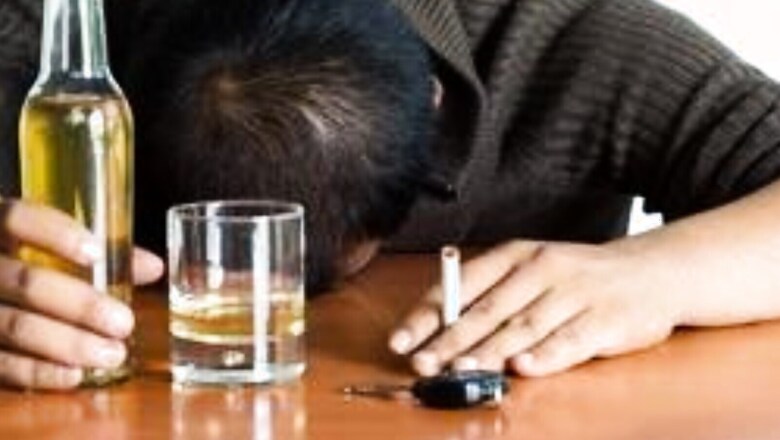
views
There is a thin line between getting absolutely drunk and being tipsy especially after you have had a difficult work week. You are bound to feel light-headed and be a little ditzy and dizzy in both cases.
But, how do you know you are drunk? What are the determining factors and are there determining factors at all, that one must keep in mind?
Based on a report published by the National Family Health Survey-5 (NFHS-5), a total sum of 1 per cent of women aged 15 and above consume alcohol which is in comparison to 19 per cent of men who are in the same age group.
And, while we often make tall claims about knowing how much alcohol our bodies can deal with, one must keep in mind that this is something that keeps differing based on our temperament and how tired or active we have been feeling on the given day.
Therefore, even if you are aware of your alcohol consumption capacity, you should in no way overdrink. Stability is never overrated and practising it will do you a world of good.
Dr Pankaj Puri, Director, Gastroenterology and Hepatobiliary Sciences, Fortis Escorts, Okhla, New Delhi told the Indian Express, “Regular intake of alcohol changes the metabolism of alcohol and, thus, a larger amount of alcohol is required for a person to feel its effect. On the other hand, elderly people may have a higher effect even in lower doses. Female metabolism is different and they get toxic effects at lower doses.”
Dr Sandeep Satsangi, Consultant Hepatologist and Liver Transplant Physician, Apollo Hospitals, Bangalore pointed out several details related to intoxication to Indian Express as well.
He said, “The amount of alcohol needed to consume to get drunk depends on various factors – the type of alcohol, dilution used, speed of drinking, and whether one is drinking on an empty stomach or not. Women can attain higher concentrations of alcohol in the blood and become more impaired than men after drinking equivalent amounts of alcohol.”
“Most people can exhibit a certain degree of sedation and motor impairment at a blood alcohol concentration of 0.10 per cent. Any consumption of over 20 gm per day is considered significant and potentially harmful. 30 ml of whiskey, 100 ml of wine, 240 ml of beer roughly correlates up to 10 gm of alcohol,” the doctor further explained to the organisation.
If you have been feeling that you are gradually shifting towards a high level of intoxication, the signs of which are mostly very significant and clear it is advisable that you slowly start amending your acts.
It is always good to be safe than sorry and anything overdone or done in extra amounts is considered to be fatal. You should focus on the amount of alcohol that you are consuming and not overdo it!
Read the Latest News and Breaking News here




















Comments
0 comment